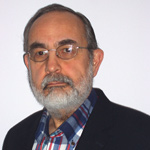Merold Westphal is Distinguished Professor of Philosophy Emeritus at Fordham University. We invited him to answer the question “What is Philosophy of Religion?” as part of our “Philosophers of Religion on Philosophy of Religion” series.
I consider philosophy to be critical reflection on our being-in-the-world. By ‘being-in-the-world’ I understand our doings and our seeings-as insofar as they reciprocally condition one another.
By ‘reflection’ I mean a kind of stepping back to look at our lives, as if from outside, though, of course, this is itself one of those doings that is conditioned by various seeings-as. We are never outside ourselves in the sense of a neutral, universal, presuppositionless “view from nowhere.” We are always somewhere in a world of doings and seeings-as, but that world can have two levels, immediacy and reflection. This means that we can move. Reflection can lead us to new understandings of the world we already inhabit or even to some quite different world.
By ‘critical’ I do not mean negative opposition but rather something like Socratic questioning. Are we clear about what we believe, what we do,and why we do it? Do our doings and seeings-as measure up to the criteria by which we profess to support them? Are the criteria themselves clear and compelling? (Philosophy has this nasty habit of shaking the foundations of our being-in-the-world by putting our criteria in question.)
So philosophy of religion is critical reflection on our (actual and possible) modes of being-in-the-world insofar as these are religious. This means, of course, that two inescapable questions will be: What is religion? or perhaps, better, How shall we make fairly precise the sense in which we are using the term? Secondly, What shall we say about those cultures, Hebrew, Hindu, Buddhist, and tribal, etc., that do not seem to have the word or the concept of religion but are clearly not secular?
Philosophy of religion as a distinct intellectual discipline is a modern, western phenomenon. James Collins finds its origins in Hume, Kant, and Hegel, but of course there are seventeenth century “founding fathers”such as Spinoza. This means that the discipline has its birth in a world where Christianity is the dominant religion; and, since Judaism is more prominent than Islam, it is the biblical versions of Abrahamic monotheism that are the default concepts of God and taken to be at the heart of religion.
When thinkers like Augustine, Anselm, and Aquinas discuss the nature of God and offer “proofs” of God’s existence, they are doing theology rather than philosophy of religion, for they operate as members of a specific religious community who take its scriptures and traditions as normative. When their discussions of God and of the relation of faith to reason are taken up in modern philosophy of religion, the assumption is that any such normative significance is at the very least bracketed and the question becomes what religion might be when placed “within the limits of reason alone.”
This has led to the unsustainable (Enlightenment) assumption that “reason” is one thing, universal and without presuppositions. But philosophy’s “religion within the limits of reason alone,” taken as a project and not just the title of a book by Kant, turns out to be as plural and as presuppositional as religion in the Jewish, Christian,and Muslim versions. This is easily seen if we take the three most powerful versions of the Enlightenment project in philosophy of religion from the seventeenth, eighteenth, and nineteenth centuries respectively: Spinoza, Kant, and Hegel. Each professes to speak as the voice of universal, neutral reason, but their theories are mutually incompatible, quite particular, and conditioned by discoverable cultural traditions.
This is why I am skeptical of philosophies of religion that speak as if appeals to reason transport them to some neutral, presuppositionless “nowhere”. My own work operates within the horizons of hermeneutical phenomenology. Phenomenology seeks to bring to the light of reflection the structures of our doings and seeings-as in both their active (intentional) and passive (inversely intentional – where the intentional act comes toward us rather than emanating from us and we are seen or addressed) dimensions. As hermeneutical, phenomenology disavows any pretensions of rigorous science and recognizes that it always rests on presuppositions(Gadamer’s prejudices = prejudgments) that are born in and carried by particular traditions (language games, if you like). We are thus dealing with interpretations rather than intuitions.
For hermeneutical phenomenology the “objects” of interpretation are themselves often interpretations, such as texts or communal practices. Hence the need for what Ricoeur calls the “detour” through various cultural artifacts, especially texts. My own work in philosophy of religion has had this shape long before I found the helpful descriptions of what I was doing in thinkers like Gadamer and Ricoeur. It consists of interpretations of various authors discussing religious matters that become a conversation in which they question me and I question them. Ideally this conversation is Socratic rather than sophistic. In other words, the goal is not to win but to increase clarity and conceptual precision and to see which interpretations best stand up to cross examination.

